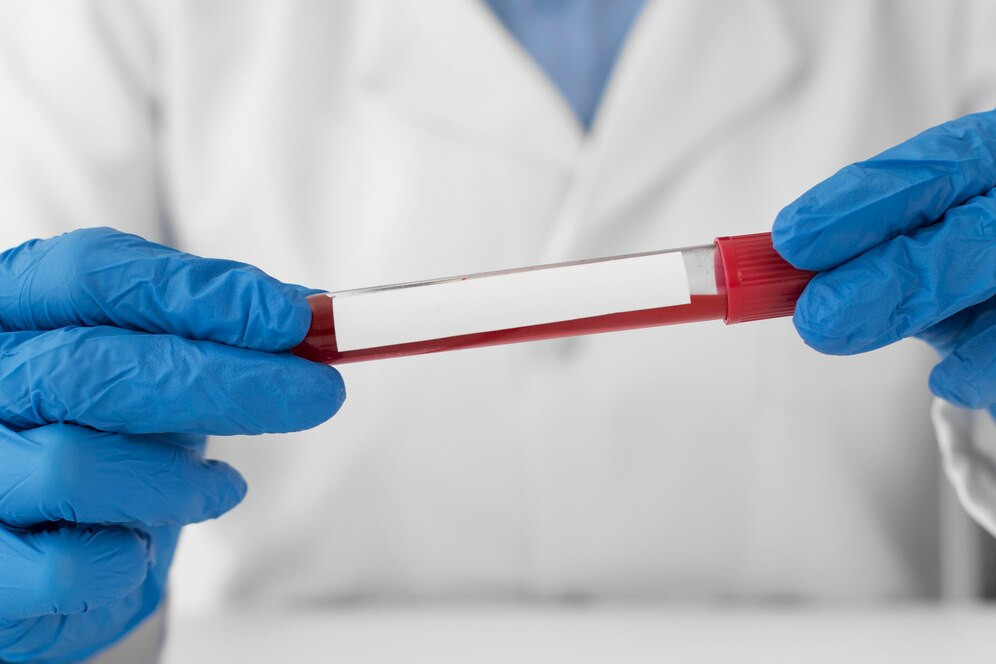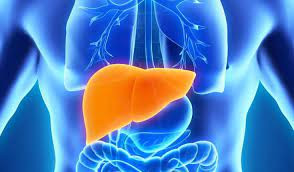Definisi
Pemantauan obat terapeutik adalah pemeriksaan yang mengukur kadar obat tertentu di dalam darah. Pada kondisi ini, pemeriksaan ini dilakukan untuk mengetahui kadar fenobarbital dalam darah Anda. Anda bisa melakukan pemeriksaan ini bila dokter Anda meresepkan obat fenobarbital untuk mengatasi kondisi medis Anda. Pemeriksaan ini bisa membantu mengetahui apakah Anda menerima dosis fenobarbital yang aman dan tepat.
Fenobarbital yang tergolong sebagai obat barbiturat adalah obat yang memiliki efek sedatif-hipnotik, yaitu obat yang memiliki efek menenangkan. Obat ini bekerja dengan memperlambat aktivitas otak. Fenobarbital memiliki banyak peran dalam pengobatan dan sering digunakan untuk membantu mengatasi kejang. Dokter juga memanfaatkan obat ini sebagai pengobatan kondisi status epileptikus, yaitu keadaan darurat medis yang ditandai dengan episode kejang terus-menerus selama 5 menit atau lebih. Fenobarbital, meskipun bermanfaat untuk pengobatan kondisi ini, sudah banyak digantikan dengan obat lain yang memiliki efek samping berbahaya yang lebih sedikit.
Memastikan apakah pengobatan yang diberikan efektif tanpa memicu efek samping berbahaya bisa menjadi suatu tantangan. Ketika kadar fenobarbital dalam darah naik di atas ambang batas tertentu, pasien lebih berisiko tinggi untuk mengalami efek samping fenobarbital.
Kami juga memiliki artikel mengenai kejang yang bisa Anda baca di sini: Kejang - Definisi, Faktor Risiko dan Tata Laksana
Indikasi
Sangat penting untuk menjaga agar kadar obat fenobarbital yang didapat berada dalam tingkat yang sesuai di dalam darah. Tingkatan ini disebut sebagai rentang terapeutik. Rentang terapeutik ini mengacu pada dosis optimal dari fenobarbital yang Anda perlukan untuk menangani kejang secara efektif sekaligus meminimalisir munculnya efek samping yang tidak diinginkan.
Pemeriksaan ini membantu memperlihatkan apakah dosis fenobarbital yang sudah diberikan berada dalam rentang terapeutik dari obat tersebut. Memiliki kadar fenobarbital di bawah batas normal dalam darah dapat meningkatkan kemungkinan pasien untuk mengalami kejang kembali. Sementara itu, kadar fenobarbital yang tinggi dari normal dapat meningkatkan kemungkinan pasien mengalami efek negatif.
Anda mungkin akan menjalani pemantauan fenobarbital:
- Beberapa hari sampai beberapa minggu sesudah memulai pengobatan
- Setelah ada perubahan dosis dari fenobarbital
- Setelah Anda mendapat tambahan obat antikejang lainnya dalam pengobatan rutin
- Bila dokter Anda meresepkan obat lain yang mungkin bisa berinteraksi dengan fenobarbital
- Bila kejang tidak kunjung teratasi walaupun sudah mendapat fenobarbital
- Jika Anda hamil
Selain itu, Anda akan disarankan melakukan pemeriksaan ini bila Anda mengalami efek samping dari terapi fenobarbital. Bila dokter mencurigai ada peningkatan kadar fenobarbital di tubuh Anda melebihi yang seharusnya, pemeriksaan ini perlu dilakukan.
Kontraindikasi
Tidak ada individu yang dikontraindikasikan dalam melakukan pemeriksaan kadar fenobarbital; setiap orang bisa menjalani pemeriksaan darah untuk memantau kadar fenobarbital dalam tubuhnya.
Persiapan Sebelum Pemeriksaan
Tidak ada persiapan khusus yang perlu dilakukan sebelum melakukan pemeriksaan ini. Pastikan bahwa dokter Anda mengetahui semua obat, vitamin, suplemen, atau obat herbal yang sedang Anda konsumsi secara rutin. Obat-obatan yang dimaksud juga mencakup semua obat yang dijual bebas dan zat terlarang yang mungkin Anda konsumsi. Berbagai obat yang sering diresepkan, seperti contohnya pil KB, dapat memiliki dampak pada fenobarbital dan begitu juga hasil tes ini.
Informasikan dokter Anda mengenai jumlah fenobarbital yang telah Anda dapat serta konsumsi. Konsultasikan dengan dokter apakah Anda harus minum obat yang biasa Anda minum sebelum pemeriksaan atau tidak.
Prosedur Pemeriksaan
Tenaga kesehatan akan mengambil sampel darah yang dibutuhkan untuk pemeriksaan dari pembuluh vena, umumnya dari vena di lengan Anda, menggunakan jarum suntik kecil. Setelah jarum dimasukkan, sejumlah darah akan diambil dan dimasukkan ke dalam tabung reaksi. Anda mungkin merasa sedikit nyeri saat jarum dimasukkan atau dikeluarkan.
Nilai Normal dan Abnormal
Hasil pemeriksaan Anda akan menunjukkan apakah kadar obat fenobarbital yang diberikan dalam tubuh berada dalam kisaran yang bermanfaat untuk pengobatan dan tidak dalam rentang yang berbahaya. Kadar fenobarbital diukur dalam satuan mikrogram per mililiter (mcg/mL).
Rentang kadar normal fenobarbital dalam tubuh yang dianggap efektif tanpa menimbulkan masalah secara kesehatan bagi orang dewasa adalah sekitar 10-40 mcg/mL. Bila kadar fenobarbital dalam darah di atas 40 mcg/mL, pasien berisiko tinggi mengalami efek samping berbahaya dari fenobarbital.
Hasil dan Saran (Pemeriksaan Lanjutan)
Bila hasil pemantauan fenobarbital Anda berada di luar rentang terapeutik ini, dokter mungkin akan mengubah dosis fenobarbital yang diberikan pada Anda. Sebagai contoh, bila pada hasil tes ditemukan bahwa kadar fenobarbital dalam darah Anda di atas normal, maka dosis obat mungkin perlu diturunkan. Namun bila kadar fenobarbital dalam darah terlalu rendah, maka dosis obat mungkin perlu ditingkatkan.
Sebagai obat golongan barbiturat, tanda keracunan atau toksisitas akan terlihat jelas pada pasien yang mengonsumsi obat minum dengan dosis 1 gram, walaupun hal ini dapat bervariasi pada setiap orang. Dosis obat yang melebihi 2 gram bisa berakibat fatal, dengan dosis mematikan sering kali berada dalam kisaran 40-80 mcg/mL pada hasil pemeriksaan.
Peningkatan kadar fenobarbital dalam darah di atas normal bisa meningkatkan risiko terjadinya keracunan. Tanda keracunan obat golongan barbiturat ini bervariasi, namun gejala yang bisa muncul di antaranya:
- Mual
- Kelemahan otot
- Rasa haus hebat
- Gangguan kognitif
- Detak jantung lambat
- Terganggunya koordinasi
- Penurunan produksi urine
- Suhu tubuh rendah
- Pupil melebar (midriasis)
- Kematian bisa terjadi akibat depresi pernapasan berat, tekanan darah rendah, dan koma
Setelah dosis fenobarbital Anda diubah, Anda mungkin perlu menjalani beberapa pemeriksaan sampai kadar fenobarbital di tubuh Anda berada dalam rentang ideal. Dokter Anda akan menganalisis hasil tes darah Anda, bersama dengan faktor-faktor lain, untuk menentukan apakah diperlukan penyesuaian pada pengobatan Anda.
Konsultasikan ke Dokter yang Tepat
Hasil pemeriksaan bisa berbeda tergantung beberapa faktor seperti usia, jenis kelamin, riwayat kesehatan, atau faktor lain seperti laboratorium yang digunakan. Konsultasikan hasil pemeriksaan dengan dokter umum atau dokter spesialis saraf untuk mengetahui interpretasi lebih dalam dari hasil tes Anda.
Mau tahu informasi seputar hasil pemeriksaan laboratorium, radiologi, dan lainnya? Cek di sini, ya!
- dr Hanifa Rahma
Phenobarbital. (2022). Retrieved 16 January 2023, from https://www.ncbi.nlm.nih.gov/books/NBK532277/
Phenobarbital. (2020). Retrieved 16 January 2023, from https://medlineplus.gov/druginfo/meds/a682007.html
Therapeutic Drug Monitoring. (2021). Retrieved 16 January 2023, from https://medlineplus.gov/lab-tests/therapeutic-drug-monitoring/
Phenobarbital, Blood Level. (2023). Retrieved 16 January 2023, from https://spectrumhealth.testcatalog.org/show/LAB30-1
Phenobarbital. (2023). Retrieved 16 January 2023, from https://www.urmc.rochester.edu/encyclopedia/content.aspx?contenttypeid=167&contentid=phenobarbital#:~:text
Phenobarbital Level. (2020). Retrieved 16 January 2023, from https://emedicine.medscape.com/article/2090284-overview



/6302127de39a5.jpg)








